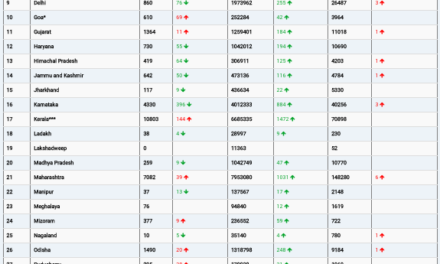New research presented at the American Academy of Neurology (AAN) 2024 annual meeting suggests that vaporized cannabis containing tetrahydrocannabinol (THC) and cannabidiol (CBD) may offer rapid and sustained relief for acute migraine pain without serious side effects.
Dr. Nathaniel Marc Schuster, from the University of California San Diego Center for Pain Medicine, led the single-center randomized controlled trial involving 247 treated migraine attacks. He reported that four puffs of vaporized THC-CBD mix were effective in treating acute migraine pain.
“The superiority of THC-CBD over placebo was unlikely explained by unmasking, given that in our blinding analysis most patients who got THC actually did not think they got some THC,” Schuster stated during the presentation.
In the study, participants treated up to four separate moderate to severe migraine attacks with one of four different treatments: 6% THC, 11% CBD, a mix of 6% THC and 11% CBD, or placebo. The primary endpoint was pain relief at 2 hours from vaporization, with secondary endpoints including freedom from pain and freedom from the most bothersome symptom (MBS) at 2 hours.
Results showed that the THC-CBD mix was superior to placebo in achieving pain relief (67.2% vs. 46.6%), pain freedom (34.5% vs. 15.5%), and MBS freedom (60.3% vs. 34.5%) at 2 hours. Additionally, the THC-CBD mix demonstrated sustained pain freedom at 24 hours and sustained MBS freedom at 24 and 48 hours. Importantly, there were no serious adverse events reported.
Dr. Hsiangkuo (Scott) Yuan, from Thomas Jefferson University, commented on the study’s findings, noting the statistically significant differences between THC-CBD and placebo for pain relief, pain freedom, and MBS freedom at 2 hours. Yuan highlighted the need for careful dosing control, considering THC’s narrow therapeutic window for analgesia.
“While there was no serious adverse event, it is not completely risk-free, especially when cannabis is used repeatedly for a short duration. Since the physician does not have direct control over what happens at the dispensary, we need to counsel our patients more carefully when recommending cannabis/cannabinoids,” Yuan said.
Yuan also emphasized the necessity for further research to determine the optimal THC-CBD ratio and potency for acute migraine treatment, as well as the potential impact of repeated use on efficacy and safety.
In conclusion, while cautiously optimistic about the use of cannabis for acute migraine, experts stress the importance of continued investigation into its efficacy, safety, and potential adverse effects.











